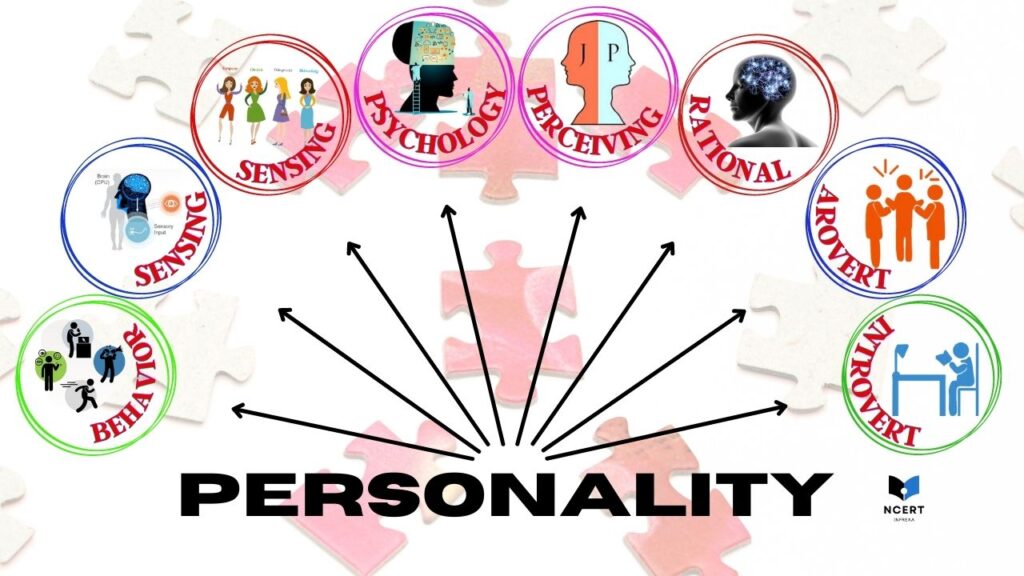Personality is a complex and multifaceted concept that goes beyond mere appearance or behavior. It encompasses the unique qualities, thoughts, and emotions that shape how an individual interacts with the world.
Meaning of Personality
Personality refers to the unique combination of traits, behaviors, and patterns that distinguish individuals from one another. It is often understood in two main aspects: physical appearance and internal characteristics, such as how a person thinks, speaks, and acts.
While appearance may offer an initial impression, personality is deeply rooted in the inner aspects of an individual, including their attitudes, values, and emotions, which influence how they relate to others and respond to various situations
Definition
According to McCardi, personality is defined as “the dynamic and organized set of characteristics possessed by a person that uniquely influences their cognitions, motivations, and behaviors in various situations.” This definition highlights the complex and multifaceted nature of personality, encompassing a person’s mental and emotional attributes and how they interact with different environments and situations.
Key Characteristics
Personality is not just about how we appear but includes a range of traits and tendencies that define who we are. Here are some key characteristics:
- Sociability: Humans are inherently social beings, and our interactions with others reflect significant aspects of our personality.
- Goal-Oriented Behavior: Personality often drives how we set and pursue our goals, influencing our motivation and persistence.
- Self-Awareness: Being conscious of our thoughts, feelings, and behaviors, and how others perceive us, is a vital part of personality.
- Adaptability: The ability to adjust to different environments and situations is a key personality trait, helping individuals navigate social and professional landscapes.
- Physical and Mental Health: A balanced personality is often linked to good physical and mental health, as they are interrelated aspects of overall well-being.
- Continuous Development: Personality is not static; it evolves through experiences and growth over time.
- Enthusiasm: A positive and enthusiastic outlook can drive individuals to overcome challenges and remain focused on their goals.
Measurement Methods
Personality can be assessed using various methods, which can be broadly categorized into non-projective and projective techniques:
- Non-Projective Methods:
- Personal Methods: These involve interviews, questionnaires, and personal observations to understand an individual’s personality traits.
- Objective Methods: Tests and assessments are used to evaluate specific aspects of personality.
- Projective Methods:
- Rorschach Inkblot Test: Developed by Hermann Rorschach in 1921, this method uses ambiguous images to reveal the unconscious mind of the individual.
- Other Techniques: Projective methods aim to explore deeper, often hidden aspects of personality by eliciting responses to ambiguous stimuli.
Conclusion
Personality is a dynamic and evolving aspect of human life, influenced by various internal and external factors. While it’s challenging to fully uncover the unconscious elements, understanding and developing one’s personality is crucial for personal and professional growth.
In this article, we explored the meaning, definition, characteristics, and methods of measuring personality. If you found this information useful, please share it with others.




